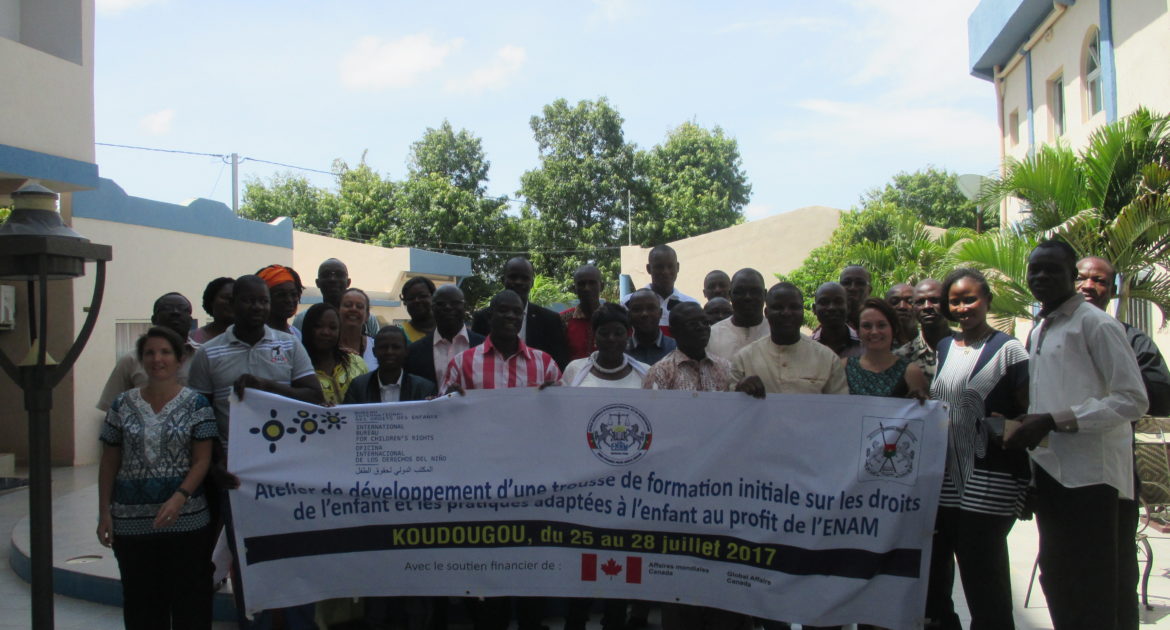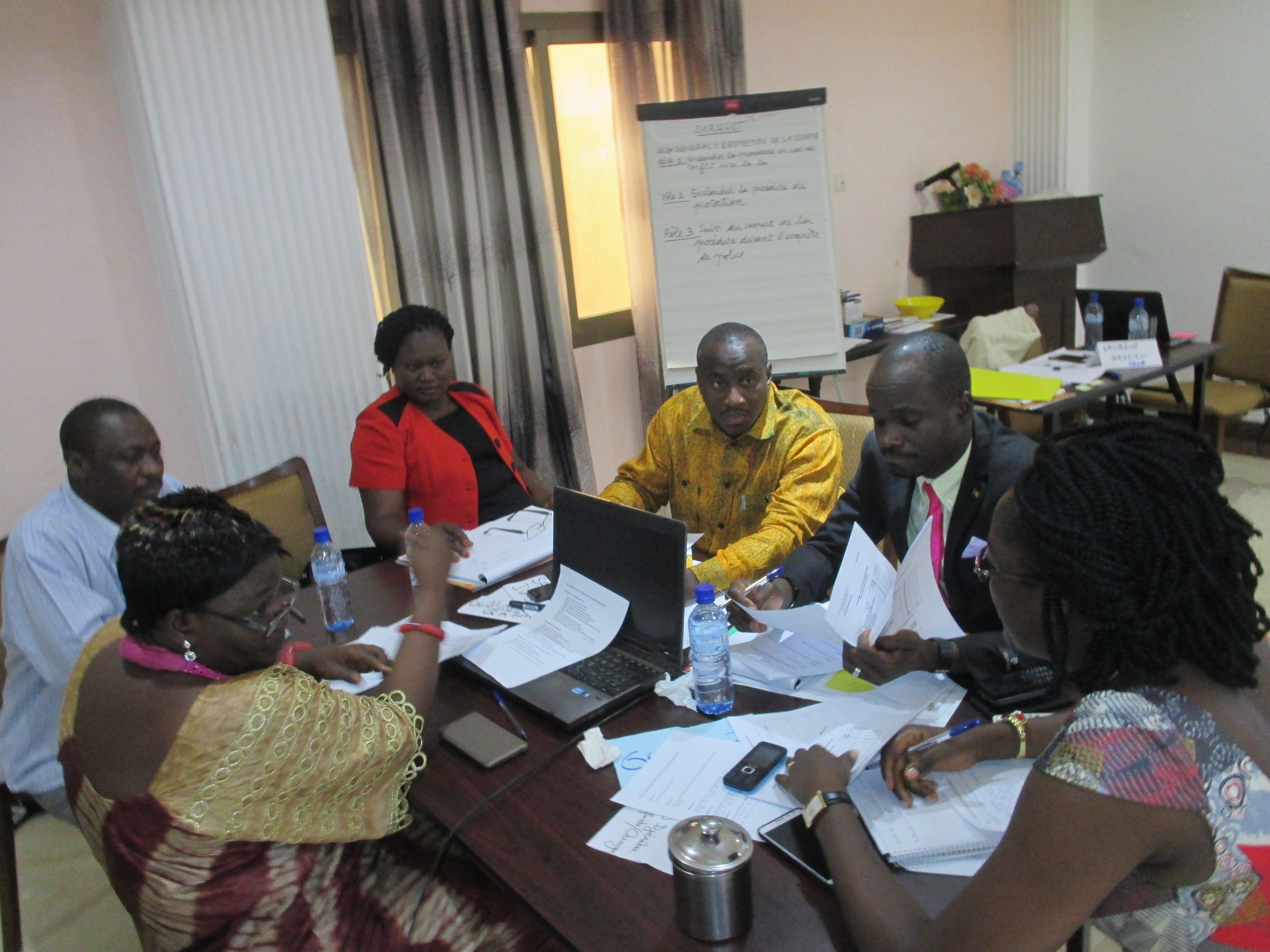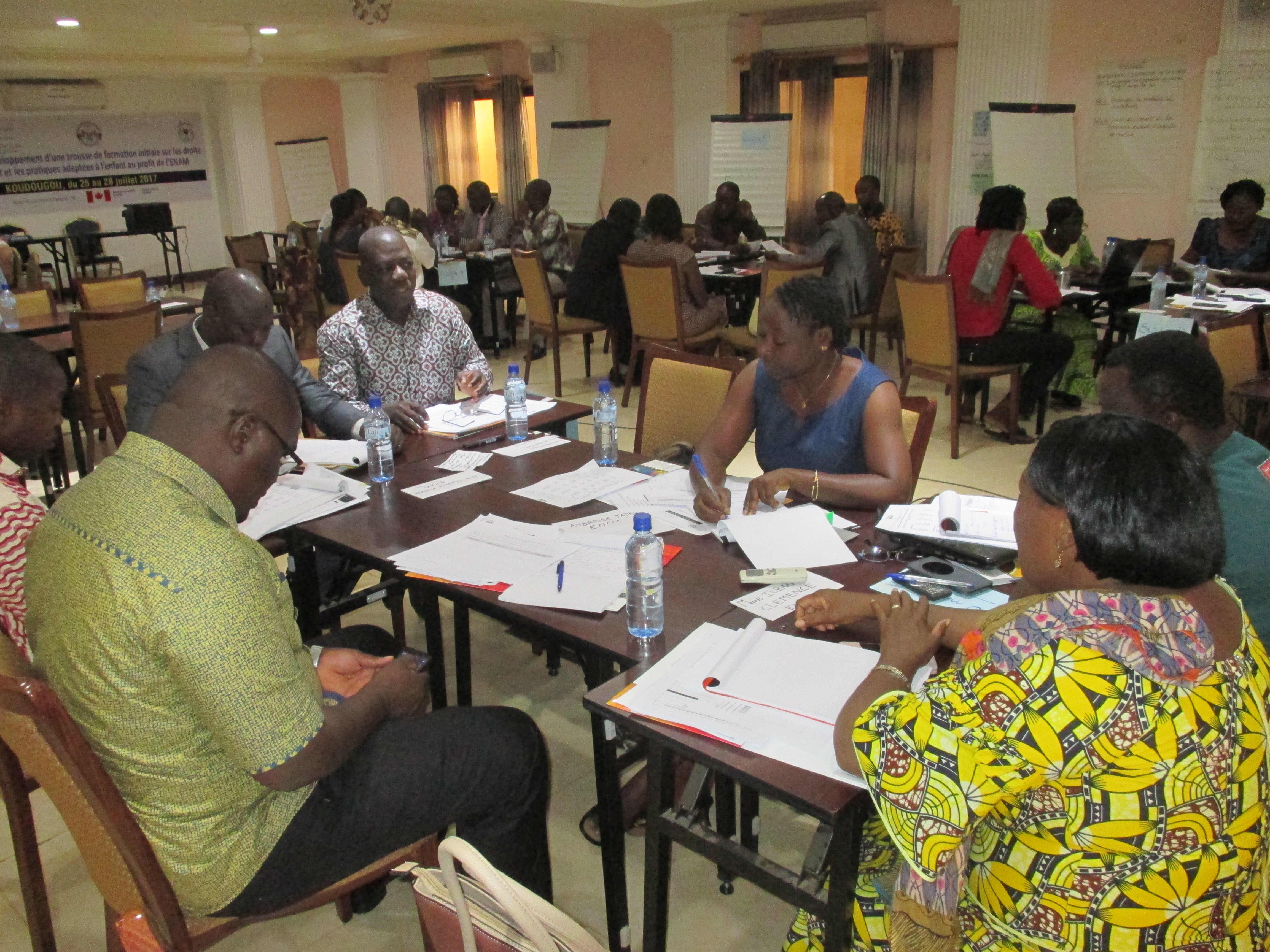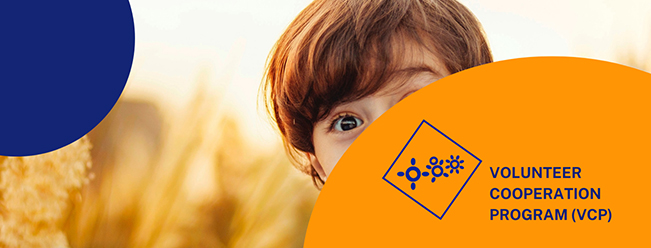
July was a busy month for the IBCR in Burkina Faso. Indeed, Sabine Michaud, institutional standards manager, Martin Causin, project manager for the Burkina Faso project, Danielle Valiquette, director of programmes and development in Subsarahan Africa, and Anne-Marie Gervais, skills transfert and training specialist, went to Burkina Faso in order to follow-up on the documentation produced for the mapping report concerning the state of the rights of the child in Burkina Faso, a process that implied the participation to events and workshops for the team.
From the 4th to the 7th of July, a workshop on the development of the initial training kit for social workers took place in Koudagou. Anne-Marie Gervais, along with Elodie Legrand, Martin Causin and Laurène Graziani were joined by 32 participants, including the director general of the INFTS ( National Formation Institute in social work), the director of studies and the two directors of two schools part of the INFTS, representatives of MFSNF (Ministère de la femme, de la solidarité nationale et de la famille), the representative of the GTPE (working group on the protection of childhood) as well as 15 teachers. The debates were interesting and provided a lot of much needed information.

The workshop on formation for the justice departement’s personnel took place from 25th until the 28th of July in Koudougou, with Danielle Valiquette, Laurène Graziani and Martin Causin. This workshop mobilised 34 participants, including the presiding judge of the children’s court in Ouaga along with 9 other magistrates. Representants of the ENAM (National School of Administration and Magistrature) as well as teachers and MFSNF’s representatives were present.

On July 28th in Ouaga, another workshop took place in order to present the mapping report. Danielle Valiquette and Martin Causin were present. About 60 people were present at the event, such as many representatives of professional schools part of the project (namely the police academy, the director of the schools of national gendarmery, the director of the INFTS,…), many police officiers and gendarmes, numerous direction representatives of the MFSNF, protection of the child’s networks, associations and non-lucrative organisations. A strong presence was noticed from the press, with tv chains and newspapers such as RTB, TNB, BF1, Le Faso as well as Sidwaya. The document warmly welcomed by the different structure’s representatives at the event. Furthermore, the diffusion of the document will continue in september and october 2017.
The pilot committee’s meeting took place at Ouaga on August the 2nd, with Danielle Valiquette and Martin Causin. Congratulations were in order from the co-presidents and other partners on the way the project was managed by the IBCR, including the ajustments made in the last few months.
Finally, there was a official and public presentation of the mapping report on the state of the child protection system in Burkina Faso. There was also the presentation of some testimonies and recommendations about the exchanges of social workers in Togo and Benin. Several partners were present, including the Minister of Women, National Solidarity and Family, the Ambassador of Canada in Burkina Faso, the directors and heads of the various ministries as well as the heads of vocational schools involved in the project.
In her speech Danielle Valiquette stated that the two main objectives of this project were to permanently integrate multisectoral standardized operating procedures into the practice of children in contact with the law and to incorporate training modules on the rights and protection of the child into the initial and specialised training of police, gendarmes, judicial personnel and social workers, actions that will equip these practitioners with additional tools and skills to adapt practices to adapted to the rights and the protection of the child.
In addition to the workshops, a new focal point for the project was obtained at the Ministry of Homeland Security. Also, an agreement in principle for a justice group has already been initiated. In addition, contacts have also resumed with the school of prison security guards. Finally, all these events helped to re-launch the project and confirm good working relationships with the partners.



